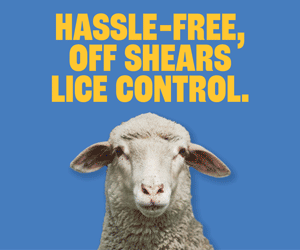
DAFF’s Jo Grainger at LambEx.
THE EUROPEAN Union isn’t likely to change its linkage of agricultural subsidies to improved animal welfare and environmental outcomes, Australian sheep producers were told in Adelaide recently.
At the launching of the fourth Australian Sheep Sustainability Framework report launch at the LambEx conference, producers were told EU sheep farmers are subsidized to undertake a wide range of normal husbandry practices.
Assistant secretary of the trade and international division at the Department of Agriculture Fisheries and Forestry Jo Grainger said the EU’s “subsidy level of agriculture” has come under increased scrutiny.
She said more consensus was emerging that the potential of the subsidies was trade distorting and DAFF believed they are “environmentally harmful”.
However, Ms Grainger said recent EU farmer protests show that attempts to link more of agricultural subsidies to improved animal welfare and environmental outcomes has not gone down well.
“But this model isn’t going to change; they’re very much wedded to it.”
Ms Grainger said EU sheep farmers receive a per hectare payment.
“It’s not coupled to production and one quarter of this payment is tied to participating in so-called eco schemes.”
EU farmers can pick through schemes such as erosion prevention, windbreaks, buffer strips, management practices without pesticides, conversion to organic and semi-natural habitat creation and enhancement, to get the payment, she said.
 “Now for farmers in the room, effectively EU farmers are being paid to do the land management that Australian farmers do just in the course of running the business.”
“Now for farmers in the room, effectively EU farmers are being paid to do the land management that Australian farmers do just in the course of running the business.”
Mr Grainger said the national government in the EU also adds sectoral initiatives, with sheep farmers in Ireland getting paid for lameness control, mineral supplementation of ewes post-mating and lambs pre-weaning, parasite control, management of pregnant ewes and flystrike control.
Ms Grainger said in 2021, EU farm support policy was published as the sector’s response to the Green Deal, a policy aimed at making the economy carbon neutral. Recent EU legislative proposals include changing the rules of animal welfare at the time of slaughter, on the farm and welfare during transport.
Deliberations on changes around welfare during transport are the most advanced are currently being discussed between the member states, the European Parliament and the European Commission. Key changes include temperature controls, she said.
“You can’t move a sheep with fleece on it at higher than 28 degrees Celsius and a nine-hour transport limit if that sheep is going to the slaughter yard.
“A 21-hour limit on road journeys if it’s a non-slaughter road journey and then unweaned calves must be provided milk replacer at nine-hourly intervals,” she said.
“These are the kind of heavily prescriptive animal welfare practices that are actually being written into EU law – this is not a guideline, a standard, this is a legislative requirement.
Delays in other pieces of legislation in the pipeline are seemingly linked to the backlash of farmers, but “leaks” indicate in the sheep sector it is likely there will be compulsory video in slaughter houses, voluntary multi-tier supply chain animal welfare requirements, and limitations on the frequency of breeding and potentially approval requirements for breeding establishments.

HAVE YOUR SAY